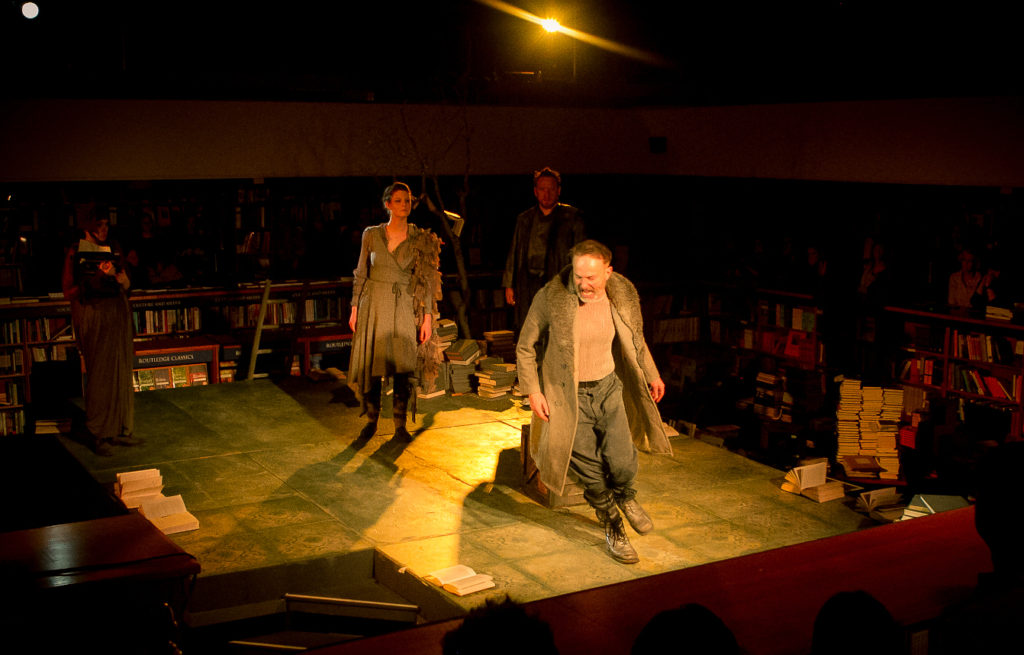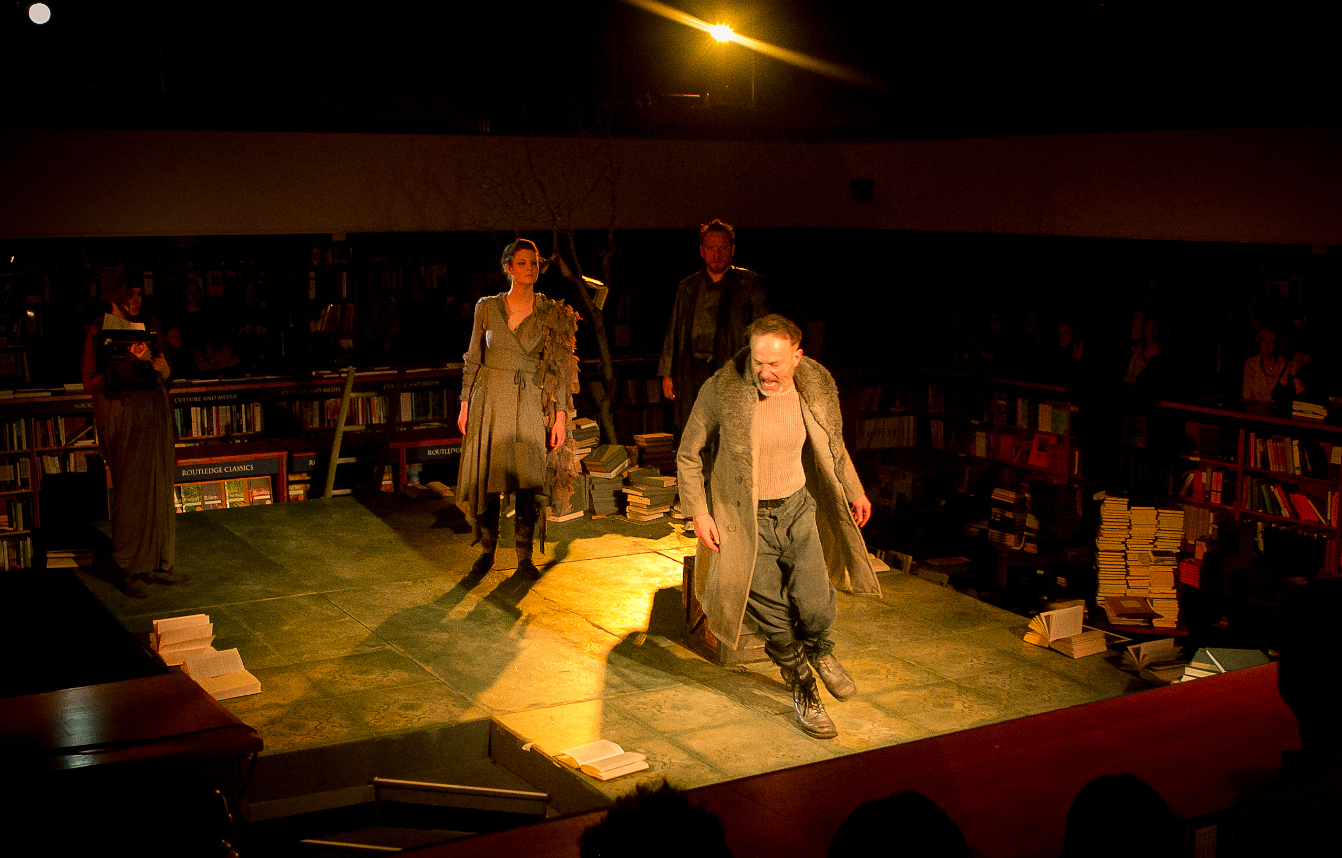
As we walked to Blackwell’s Bookshop, my friend and I were trying to remember if we’d read Bleak House. We’d both read some Dickens, of course, and I know I’ve seen the Gillian Anderson version on the BBC, but had I ever picked up the tome and read it all the way through? I wasn’t certain.
Oxford’s Creation Theatre specialises in theatre in unconventional spaces – I’ve seen their work in libraries, by rivers, in sheds – and over the past few years, it’s become a tradition for them to put on a show at Blackwell’s. Right at the bottom of the beautiful Norrington Room, they raise a stage, seat the audience all the way around the mezzanine level, and perform in the round, usually something literary, and always something that makes the most of this incredible space. This is the ideal setting for this kind of work, allowing the actors to pop through trapdoors, clamber over the shelves and stairs, and weave books and papers into the dramatization in creative ways – as birds and London fog, as well as wills and testaments.
Condensing Dickens’s work into just over two hours can’t have been easy, and Olivia Mace must be applauded for her writing. We see the world from the perspective of Esther Summerson, played by Sophie Jacob, who is brought up by her cruel aunt, and upon the older woman’s death, is taken to London to be a ward of the ongoing court case of Jarndyce and Jarndyce. Along with Esther, we are kept in the dark regarding her parentage and her connection to the Jarndyce family; Esther is not the master of her own destiny, in many ways, and yet her kindness and goodness lead her to form interesting and useful friendships with the other wards of Jarndyce, Ada Clare and Richard Carstone, and with various characters around the court and the neighbourhood.
The play captures cleverly the absurdity and tragedy of obsession with money, and with the legal profession – as we watch Ada and Richard fall in love, we also see Richard fall into an obsession with the inheritance he will receive if the Jarndyce case is ever resolved. Their cousin, Tom Jarndyce warns him not to rely on this, but to no avail, and Richard, played by Bart Lambert, continues his descent into a kind of madness.
Putting on a production of Bleak House as a musical was an interesting choice. Before the play, I wasn’t certain how (or if) this would work, but I was pleasantly surprised. Musical director Joseph Atkins brought a light touch – drawing on the talents of the actors to convey some complex narratives and emotions more succinctly through song than it might have been possible to do through a few minutes of dialogue. For instance, Esther’s character and position in life is introduced in a big opening number about shame and not belonging, which sets the scene perfectly. Changing scenes and moving through the law courts become part of the action with the cast singing harmonies as they move. Eleanor House, who plays Ada and a number of other characters has a particularly wonderful singing voice, with Morgan Philpott’s deeper tone playing a rich counterpart. All of this works to create a musical framework which doesn’t overwhelm the drama, but complements it. There are only five actors to play every character in this sprawling story, and Joanna Holden is marvellous in her physical comedy. With only the addition or removal of a scarf, she becomes numerous characters and is a joy to watch.
I warmly recommend seeing this play – it’s rich and nuanced, and a fascinating entry point to Dickens’s world of the courts and the poverty and fog of the London streets. You might even, like me, be inspired to pick up a copy of the original novel (after all, you are in a bookshop). ★★★★☆ @BookingAround 5th February 2020


